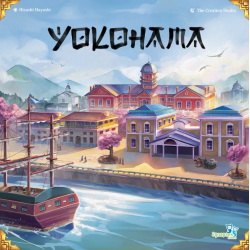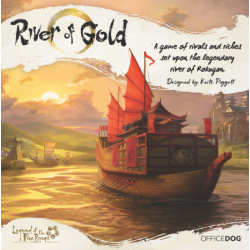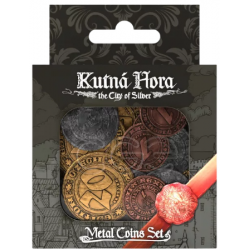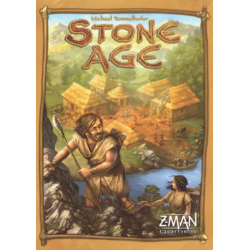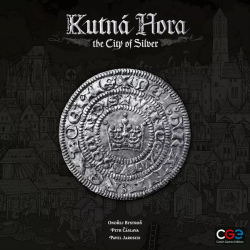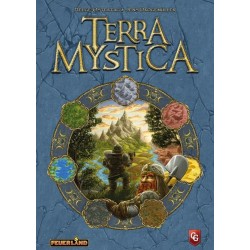No products in the cart.
Active filters
Yokohama
Once Yokohama was just a fishing village, but now at the beginning of the Meiji era it\'s becoming a harbor open to foreign countries and one of the leading trade cities of Japan. As a result, many Japanese products such as copper and raw silk are collected in Yokohama for export to other countries. At the same time, the city is starting to incorporate foreign technology and culture, with even the streets becoming more modernized. In the shadow of this development was the presence of many Yokohama merchants.
Terminus
You and your competitors’ transit companies have been hired by the city to build new subway lines and commercial developments to improve the city\'s bottom line.
Swindler
Travel back to Victorian London, where players are Swindlers who are only too happy to relieve the rich moneybags of their jewellery, money, and house keys ... They won\'t miss all that.
Gaia
Gaïa is a 2-5 player game in which you create a world, instill life in it, build cities, try to satisfy their needs, and use godly powers to shape the world to your benefit.
River of Gold
From the Spine of the World Mountains to the bustling fishing villages of Earthquake Fish Bay flows a river where fortunes can be made and lowly traders can brush shoulders with Rokugan\'s elite. Will your clan become the dominant force along this River of Gold?
Kutná Hora: The City of Silver – Metal Coins Set
Kutná Hora: The City of Silver - Metal Coins Set
Based on the Prague groschen, the coin minted from Kutná Hora\'s silver for over 200 years.
Game Accessory includes:
10 Twenties
16 Fives
25 Ones
Coin holder
Stone Age
The "Stone Age" times were hard indeed. In their roles as hunters, collectors, farmers, and tool makers, our ancestors worked with their legs and backs straining against wooden plows in the stony earth. Of course, progress did not stop with the wooden plow. People always searched for better tools and more productive plants to make their work more effective.
Kutná Hora: The City of Silver
Join other ambitious guild leaders in mining and developing the famous City of Silver during its period of rapid economic growth and expansion in the 14th century — from the first discovery of silver near the Cistercian monastery to the construction of Kutná Hora, which quickly became one of the most important cities in central Europe.
Kutná Hora: The City of Silver is a historical city-building Eurogame for 2-4 players that features a real-life supply and demand experience in which every action you take has an impact on the game\'s dynamic economic systems.
Cover Your Assets
In Cover Your Assets, players compete to become the first millionaire by building towers of matching sets made from 10 different types of asset cards (things like jewels, piggy banks, classic autos, and more). Each new set that is created is stacked crosswise on top of the previous set, covering, and protecting, all the sets beneath it.
Dinner in Paris: Battle of the Chefs
Exponential increase in direct player interaction!
More gameplay without adding complex rules.
Flexible modules that you can pick and mix.
Terra Mystica
In the land of Terra Mystica dwell 14 different peoples in seven landscapes, and each group is bound to its own home environment, so to develop and grow, they must terraform neighboring landscapes into their home environments in competition with the other groups.
Dinner in Paris
The restaurant industry in Paris is buzzing after the inauguration of a new pedestrian square in a very popular district for Parisians and tourists from all around the globe. It is a golden opportunity for you, restaurant owners, to open one of the addresses that will contribute to the culinary diversity and the reputation of the French capital. However, there isn’t space for everyone and your opponents could throw a wrench in your gears!
Pipeline
The refinement of oil has long been part of the government-controlled energy sector. Amassed with an incredibly complex and inefficient system of refineries, the government has felt the severe pressures of worldwide demand and the ever-increasing global standards for refinement. Unable to keep up with demand, the government has only one option: privatizing the oil industry.

